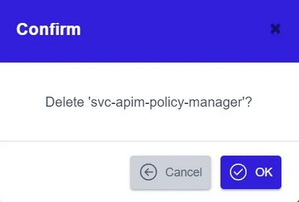Manage Storages
Storage is composed of Persistent Volume Claim, Persistent Volume, and Storage Class, and the internal screen organization is similar, so we'll refer to Persistent Volume Claim resources.
To manage Kubernetes storage resources, select Storages from the side menu:
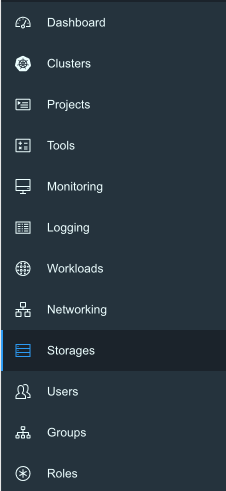
Kubernetes Resource Lookup
You can view the resources deployed in your Kubernetes cluster:
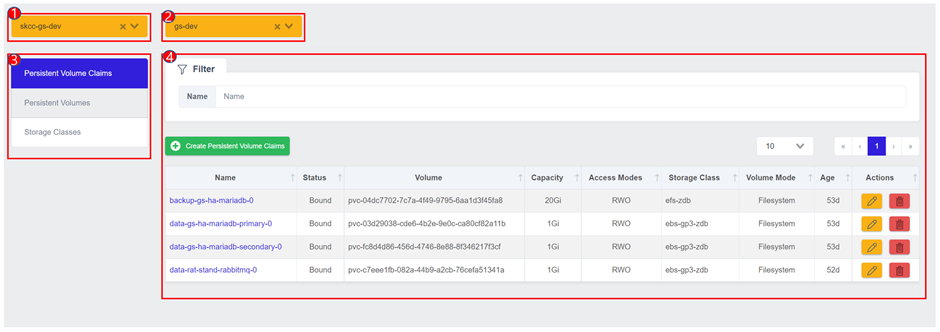
➀ Select Cluster: Select the cluster for which you want to look up resources. The list in the Namespace combo box changes as you select a cluster.
➁ Select Namespace: Select the namespace where you want to look up resources. When you select a Namespace, a list of resources of the currently selected type is displayed.
➂ Select a Resource Type: A list of resource types provided by the Modernization Platform. When selected, a list of resources is displayed.
➃ Resource List Screen: Displays a list of resource types that exist within the selected cluster, Namespace. It is searchable by Name value and provides paging functionality if there are many resources. The columns in the resource table are what comes up when you do a wide output query with the kubectl cli.
Manage Kubernetes Resource Information
Select the resource you want to learn more about from the resource list to go to the resource details screen. Service resources are organized into two tabs, YAML and Overview.
YAML
You can see the details of the resource in YAML format. You can download it as a file by clicking the Download button, edit it, and make changes to the actual resource by clicking the Save button.
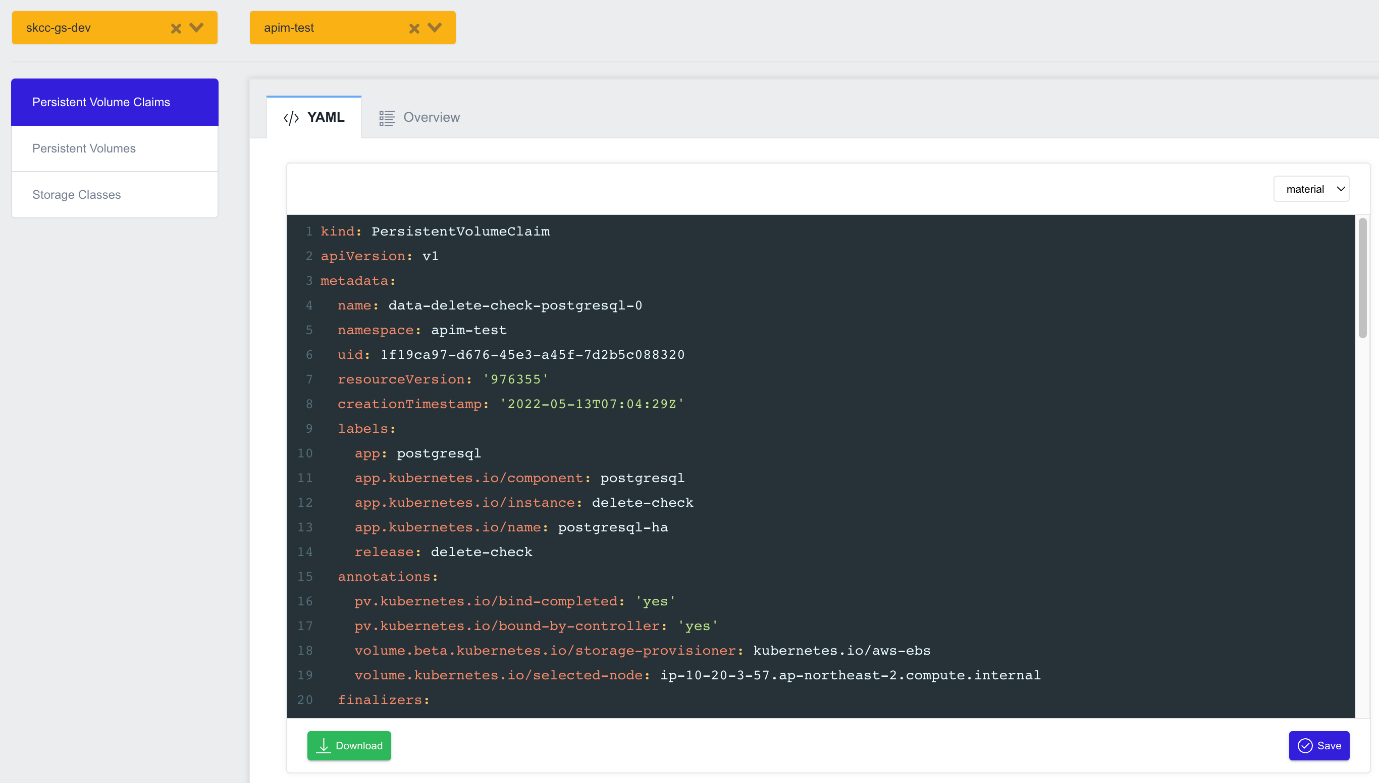
Overview
Displays the details of the resource in a separate Web UI:
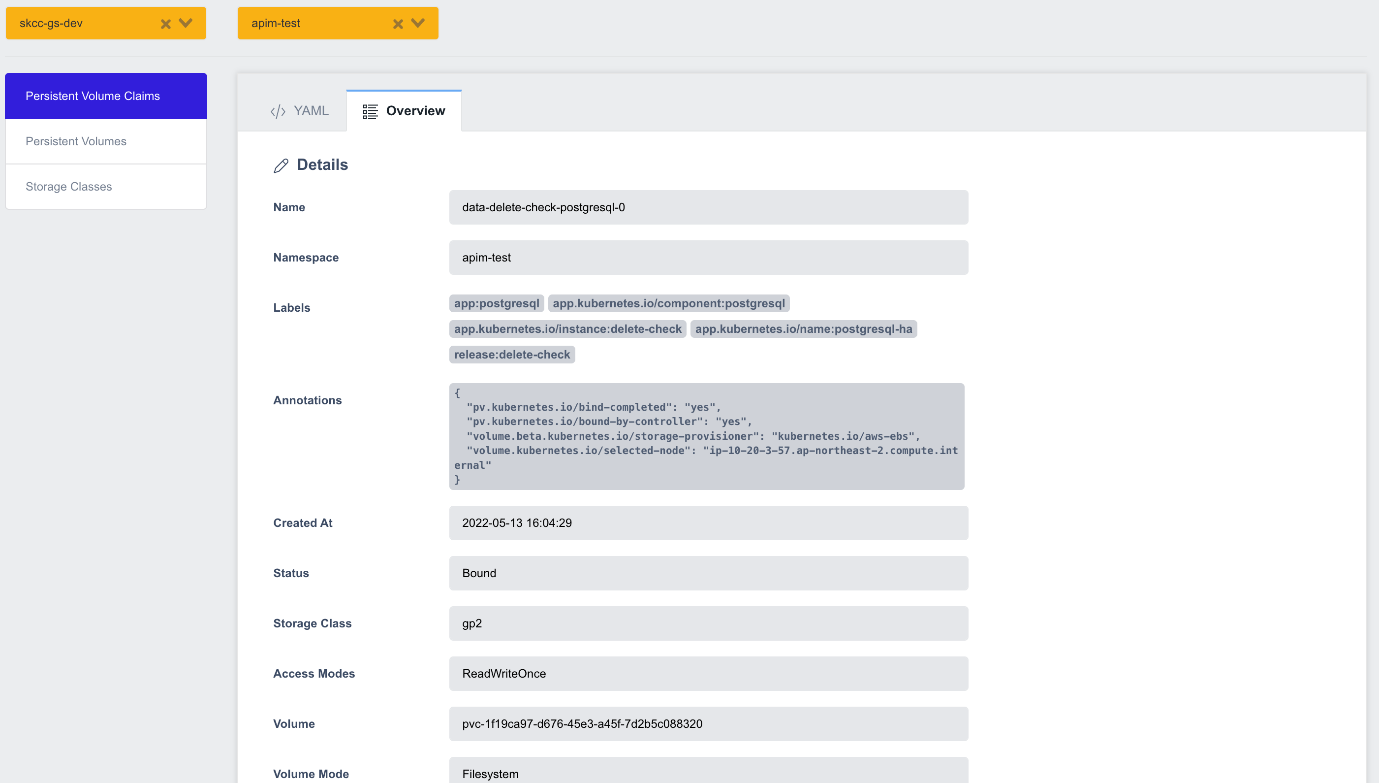
Delete a Kubernetes Resource
On the Kubernetes Resource List screen, you can delete a Kubernetes resource by clicking the Delete action button:
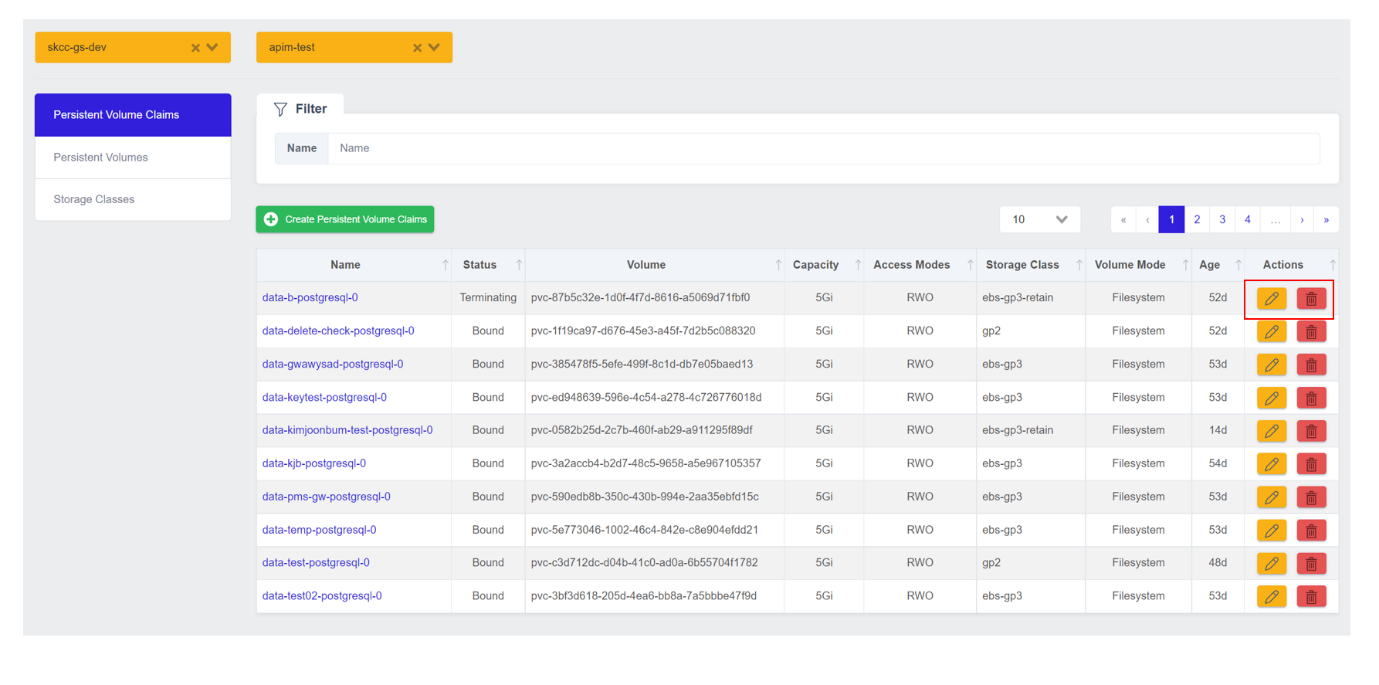
Then the Confirm Resource Deletion pop-up window is displayed. Check the name of the resource you want to delete, and click the OK button to delete the resource:
